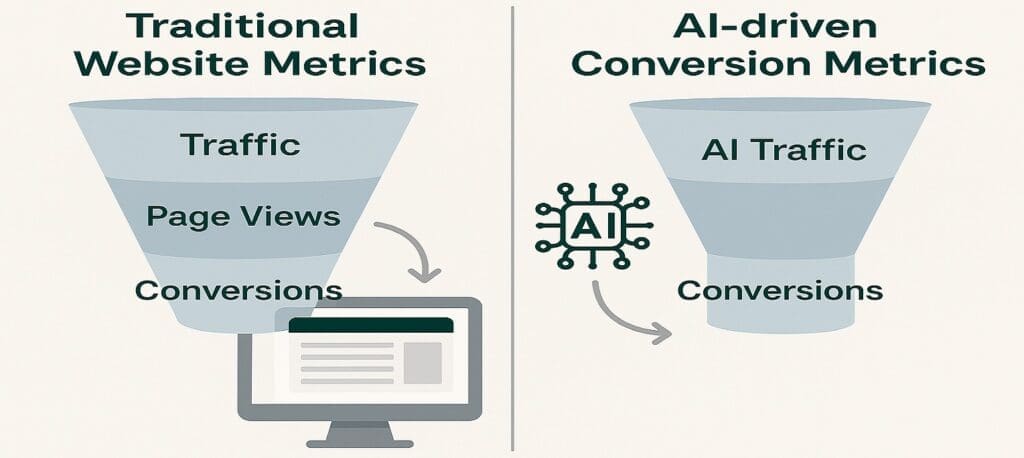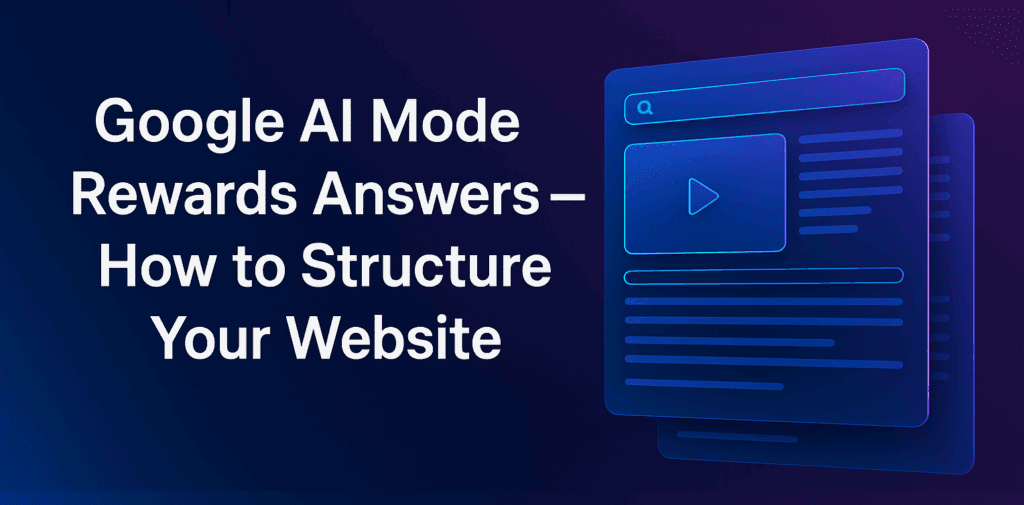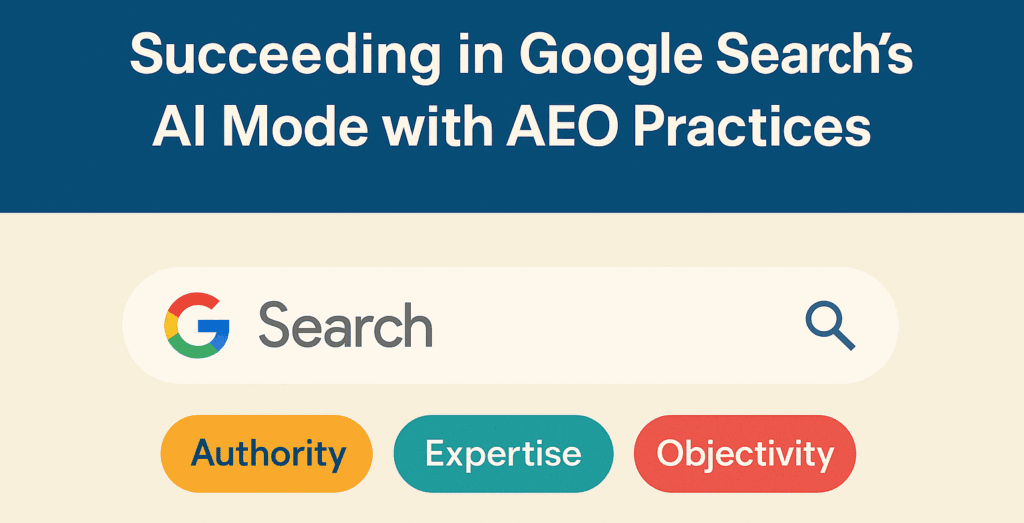AI Traffic Is Changing the Funnel, and Marketers Need to Catch Up
AI traffic converts up to 23% better than search. Learn why old metrics mislead and how to optimize your content for results with Answer Engine Optimization.
AI Traffic Is Changing the Funnel, and Marketers Need to Catch Up Read More »










